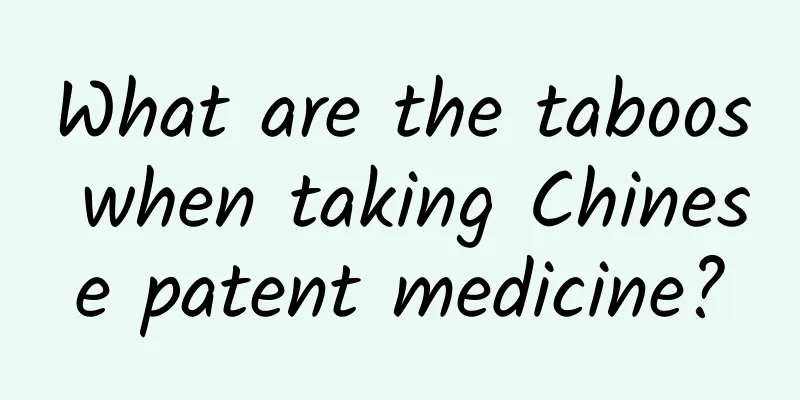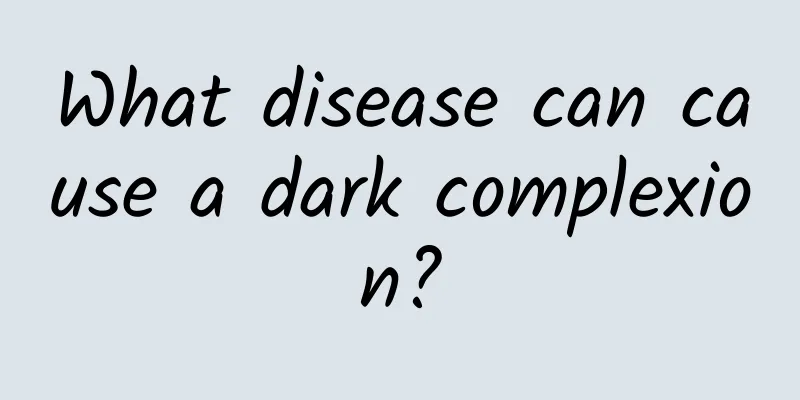What are the taboos when taking Chinese patent medicine?

|
Nowadays, when people encounter some physical illness, they will choose traditional Chinese medicine, thinking that traditional Chinese medicine can cure the root cause. However, everyone is not clear about the contraindications of taking traditional Chinese medicine. Some traditional Chinese medicines can cause a lot of harm to the body if the contraindications are not known. Because the ingredients of Chinese patent medicines are different, the efficacy of each Chinese patent medicine is also different. Especially some special groups of people must pay attention to many contraindications when taking Chinese patent medicines. So what are the contraindications? It is best not to drink tea while taking Chinese medicine. In addition, under normal circumstances and when taking Chinese medicine, you cannot take it with tea, because tea has the effect of what we often call an antidote. This is because tea contains a large amount of tannic acid, which can easily form insoluble precipitation with biological alkali. Many important active ingredients are alkaloids. For example, common Chinese medicines such as Coptis chinensis, Phellodendron chinense, Corydalis yanhusuo, Ephedra sinica, etc. contain various bioalkaloids. When it is taken with tea, precipitation will occur, which will seriously affect the efficacy of the traditional Chinese medicine. In addition, the tannic acid contained in tea has an astringent effect, which will prevent our body from absorbing some nutrients such as protein. If we drink tea, especially strong tea, after taking tonic medicines containing ginseng, yam, and codonopsis, this will greatly reduce the effectiveness of the important medicines. People should not eat half an hour before and one hour after taking Chinese medicine, especially eat less vegetables and fruits. This is because some vegetables and fruits contain substances that can react chemically with traditional Chinese medicine, thus changing the efficacy of some traditional Chinese medicines. Especially some cold fruits, such as pear, hawthorn, banana and persimmon, etc. It is best not to eat radish before taking Chinese medicine, except if you are taking some Chinese medicine for regulating qi and resolving phlegm. This is because radish has the effect of aiding digestion and breaking up qi. Especially after taking important tonic foods such as ginseng, it is best not to eat radish, because radish will reduce the efficacy of the medicine and eventually lose its tonic effect. Patients with digestive tract diseases, such as hepatitis and various chronic diseases, should not eat garlic when taking Chinese medicine to strengthen the spleen and nourish the stomach. This is because the substances contained in garlic will irritate our gastrointestinal mucosa, and then our gastrointestinal mucosa will become congested. At this time, taking Chinese medicine will not be able to exert its medicinal effect well. The above introduces the taboos when taking Chinese medicine. Many pregnant women must be particularly careful when taking such Chinese patent medicines. Moreover, some foods cannot be eaten when taking Chinese patent medicines, such as carrots and strong tea. Especially people with asthma and allergic diseases also need to be very careful. Some foods should never be eaten, such as seafood. |
<<: What are the dietary taboos for taking Chinese medicine?
>>: What are the contraindications of taking Chinese medicine?
Recommend
What is the effective treatment for breast hyperplasia?
Breast hyperplasia is a breast disease that women...
What to eat to recover quickly after medical abortion
Medical abortion is also a common method of abort...
What is a heart murmur?
Heart murmurs cannot be ignored, because they may...
What medicine should I take to treat anger?
It is quite common to get angry easily. Some peop...
How to make menstruation come quickly
Menstruation is very important for every female f...
The effect of magnolia tea
Chinese people have a habit of drinking tea to tr...
What is the best treatment for lumbar disc herniation?
In real life, many people often forget to take ca...
Mental disorder symptoms
Mental disorders are quite common in life. There ...
Postpartum wrist tenosynovitis
The main cause of postpartum wrist tenosynovitis ...
The correct method of brewing Chinese medicine
It seems that the treatments for more and more di...
There is a lump of flesh in the nose
The growth of flesh in the nose may be due to hyp...
How to treat white spots on hands
If you don’t know about vitiligo, you must be fam...
Can acupuncture remove melasma?
Chloasma is generally the most common skin diseas...
What to do if your toenails separate from the flesh
The most common reason for the separation of toen...
What are some tips for rotting lips?
What we often call sore corners of the mouth refe...









